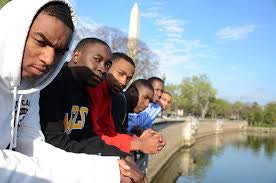
“We cannot control what has happened to Black students before they start higher education; we can only control their experience once on campus,” said Antwan Perry, the Germanna Community College academic advisor and counselor.
Perry hosted two interactive activities designed to have its participants identify perpetuated stereotypes about minority men, with the goal of encouraging productive interaction between faculty, staff and administration, and African-American male students. The multiethnic attendees of the session broke into groups, where they wrote as many stereotypes applicable to Black men as they could, which were then discussed with the larger group.
The other exercise consisted of a series of true or false statements, including that there are more Black men in prison than in college. The participants were divided as to the accuracy of the statement, however those who believed it to be true came to understand that the oft-repeated “fact” is a stereotypical myth. One person in the session stated that she “wanted to implement these exercises in her classroom.” Many in the room felt that the use of words like thug, angry and lazy to describe Black men are unfair assessments used on their campuses and discussions like these will change the mentality of staff.
Questions also arose on how to effectively engage African-American students.
“Part of successful engagement with African-Americans is to simply not stereotype them,” said Perry. “If Black students are going to a predominantly White institution, then they might not know how to respond to nuanced racism in the form of stereotypes.”
That, it was noted, could lead to issues of confusion about recourse on a campus where faculty and staff are not seeing eye-to-eye with minority students and where the students, in turn, feel like they are being judged unfairly based on stereotypes.




















